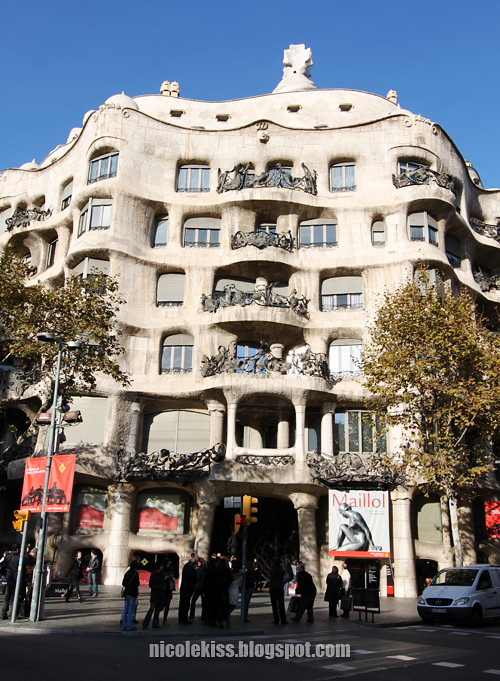
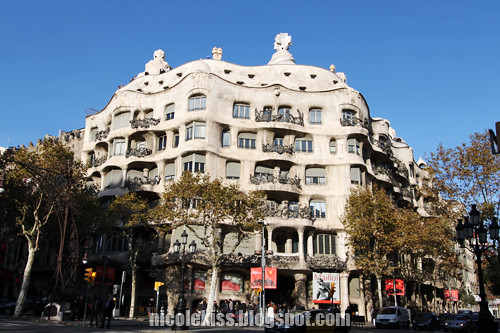
Obviously when the building was built halfway, the fact that it was taller than average buildings, "oddly" shaped and had a lot of the religious symbols (Antoni Gaudí was a strong devotee of the Virgin Mary, a.k.a. immaculate conception), it created a helluva controversy that almost ceased the project.
However, wtih the advise of a priest, Gaudí removed most of the symbols and finished the project as promised.

The Atrium
Many of the building designs around the world have been inspired by Casa Milà, wiki it up, you'll find the relevant buildings.

Rather than to be a typical residential flat, Gaudí wanted the residences to mingle and socialise so he also built lifts in between storeys so people have to walk up/down in order to leave or enter their apartments.
What I found fascinating was the extend that wealth could buy even back in those "difficult" days. Simple facilities we took for granted today such as indoor water plumbing was only readily available in urban areas in the early 1900s; and definitely only afforded by well-offs.

yes, heated water was already available
Other contraptions like telephones were still fairly new technology of 30-40 years old.
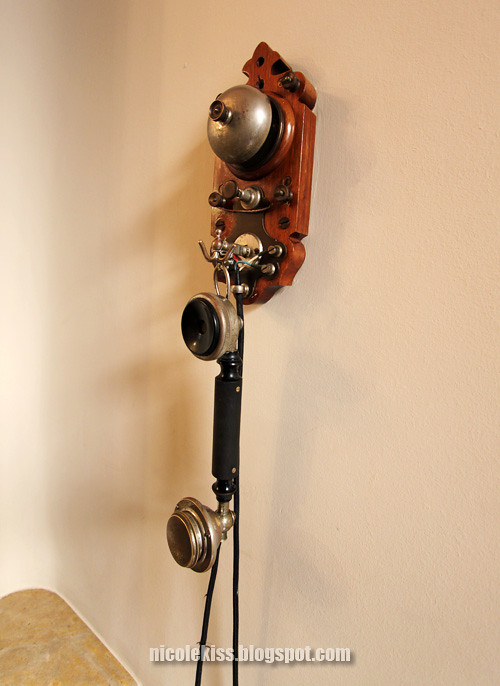
All that and incorporating Gaudí's own modernist designs on furnitures, the residence would have been a wealthy's dream home back in the days.
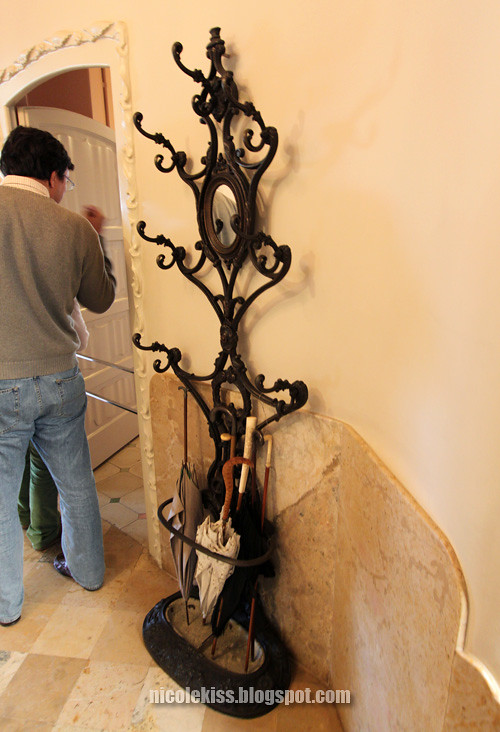
coat and hat hanger + umbrella holder + vain mirror stand
Alright, enough lecturing now. I'm so easily enchanted by the history of Europe I lost myself in it forgetting how boring I sound at times. Pardon me.
I'll let you enjoy the rest of Casa Milà on your own now.
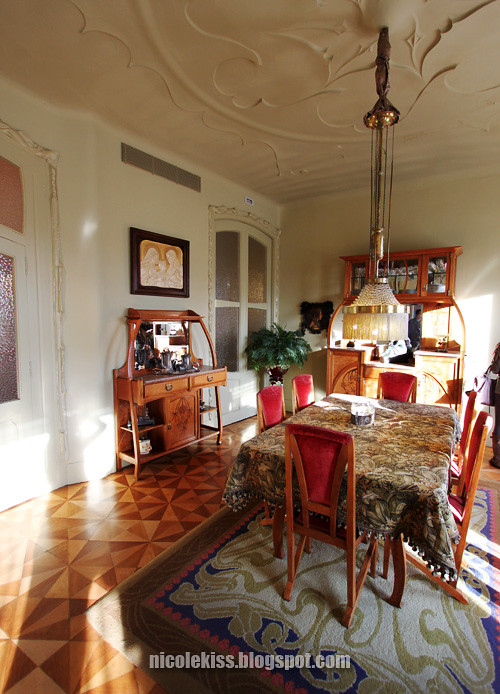
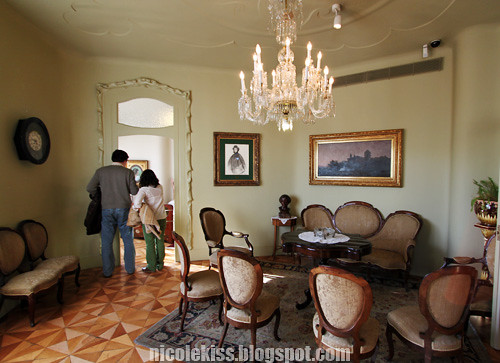
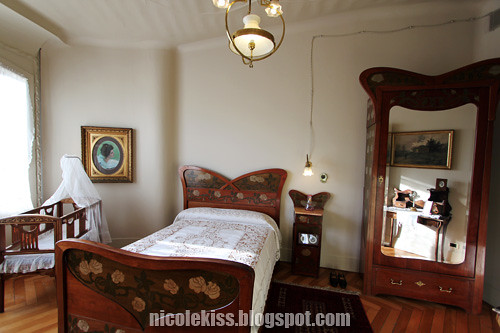
nanny's room?

shared toilet

old record player *love*
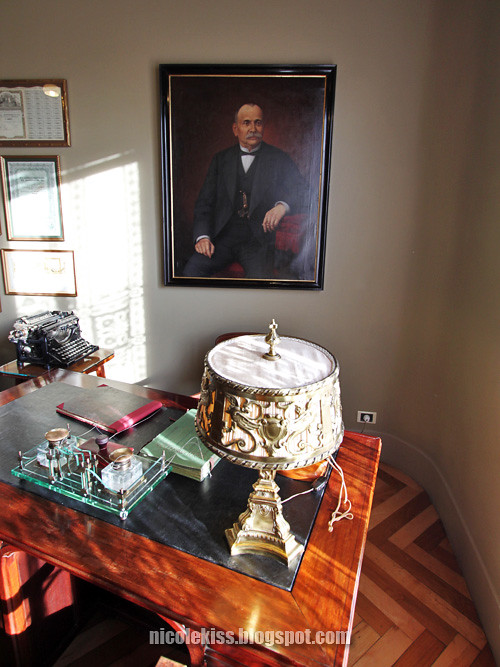
office

book case in office

exquisite chandelier
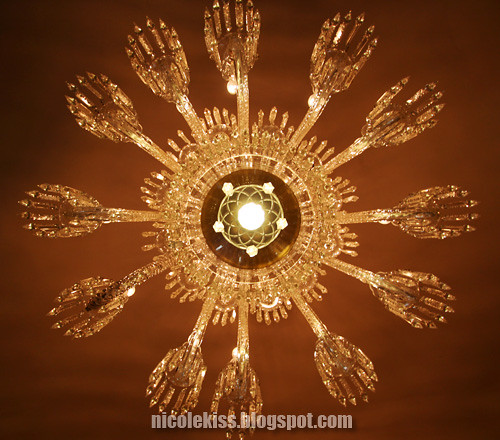
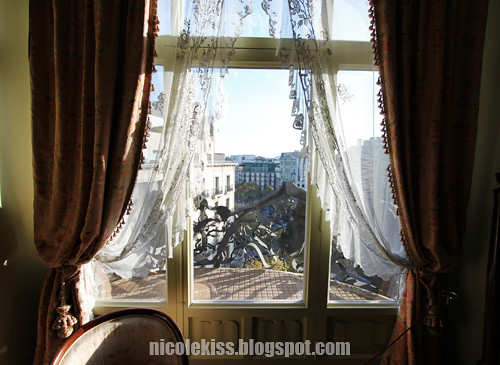
view to the city below
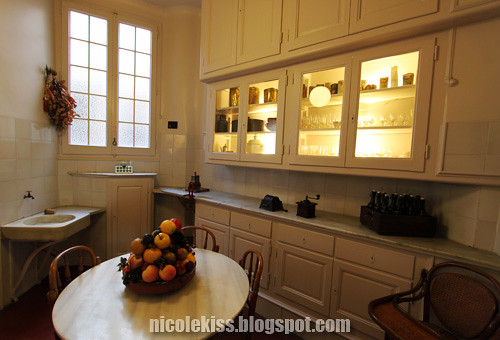
kitchen sitting table

maid's pantry area (or just kitchen)
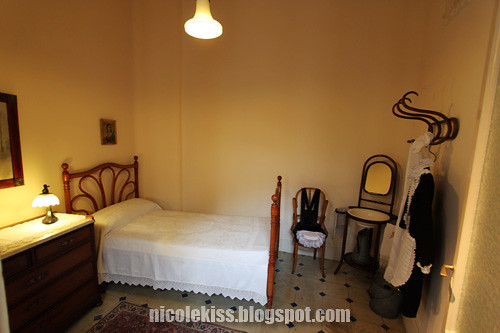
maid's room

children's room

early 1900s toys
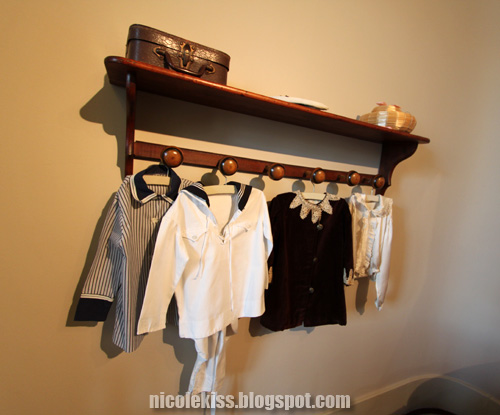
wealthy businessman's children clothes

rich kids' doll houses

I wonder whose kids are these
Massive apartment isn't it?
We would have called that a suite for today's standard of condominium's living. Or a penthouse.
Let's move to the attic when you learn a little bit about the concept behind Gaudí's designs.
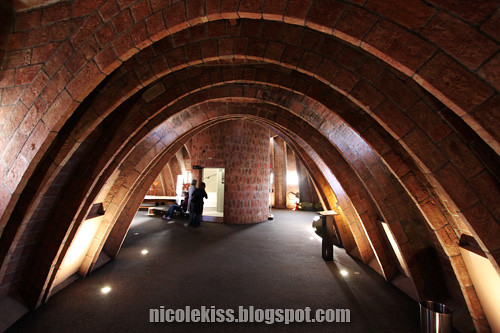
No don't worry. I'm not going to do more lecturing. Just post the rest of the photos and let you understand on your own.
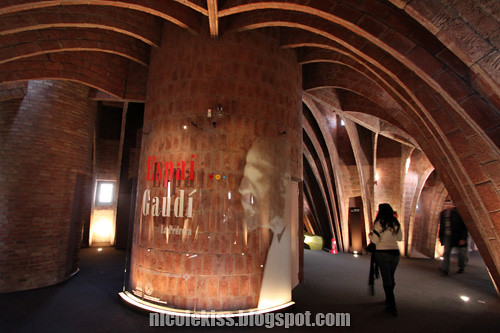
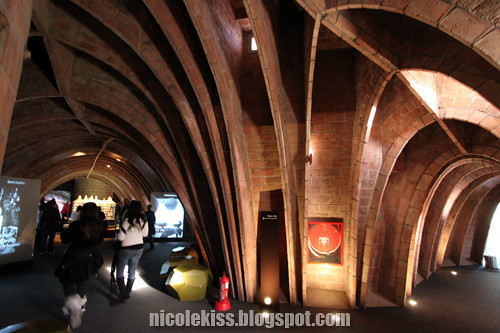
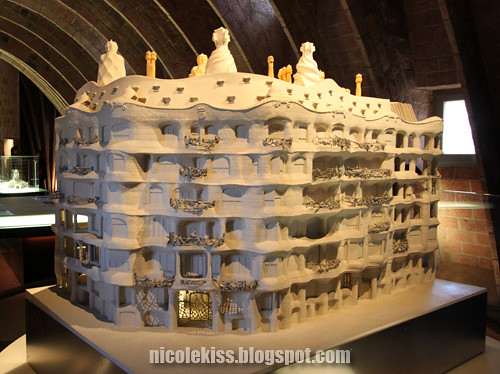
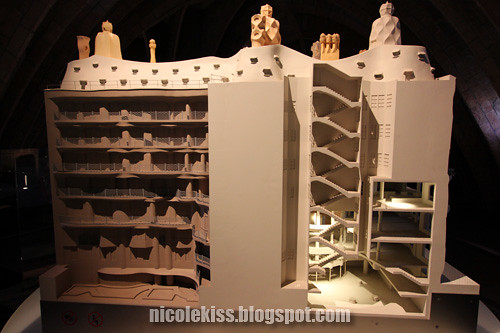
see the lifts and the walking part?


here comes the core of the attic design


how Gaudí form the bone structure for some of his buildings (bottom is a mirror)
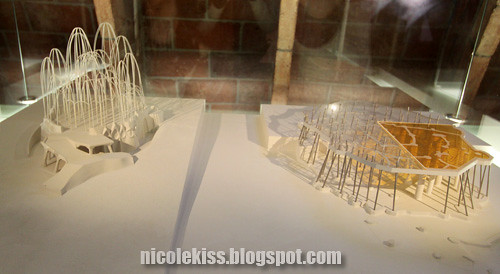
and this was how he realised the structure
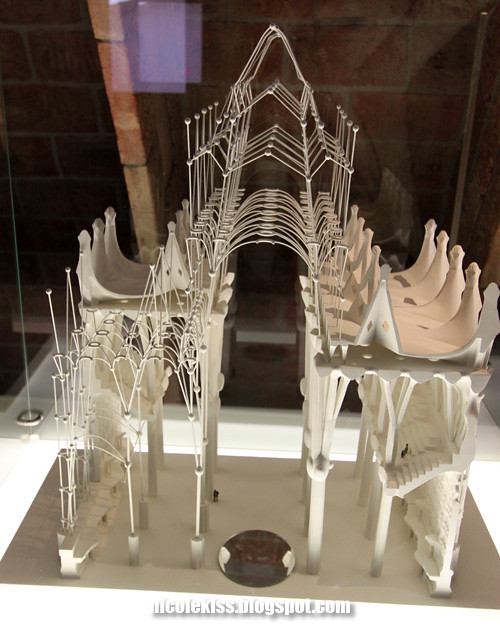
A lot of his designs were also based on nature and animal bones.


remember the coat hanger?
Oh, I have to show you this. It's my favourite!
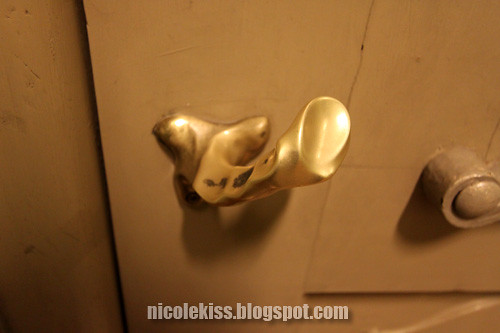
The door handle. Nothing fancy?
Well it fits your hand like .. like... fabric..
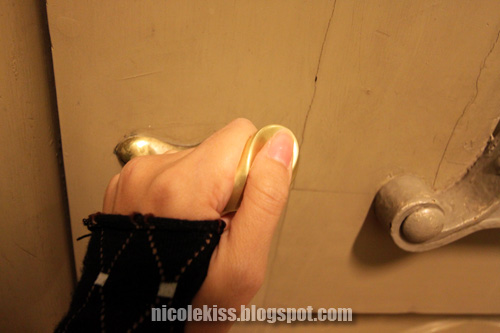
It feels totally awesome!!! I haven't seen anything quite remotely so fitting in my life (a door handle I mean).
And this door bell.
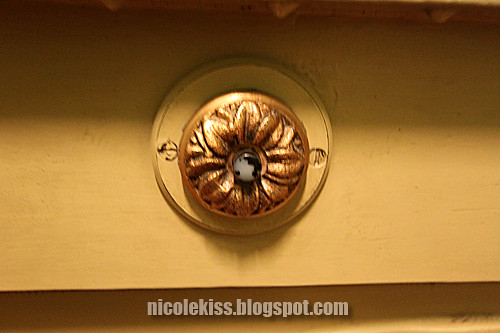
Comes with a sliding peep-door.
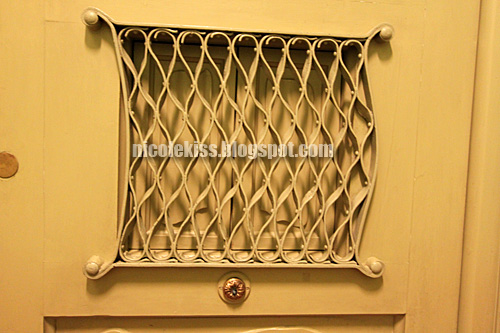
Simply brilliant! Since peep hole didn't exist back then, this was as ingenius as they come.

twin chair - it's meant to fit your body quite comfortably when you sit on it. I found it alright, perhaps they never had anything as comfortable a century ago. I'm not familiar with chairs of the 1900s so I shall keep my peace.
Finally, the roof top of Casa Milà.

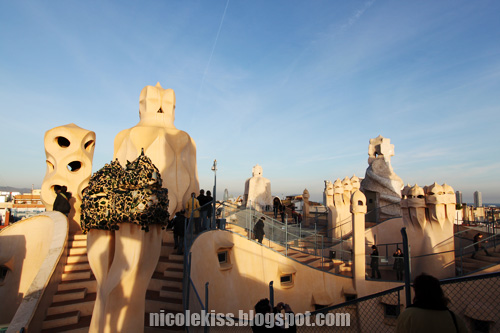
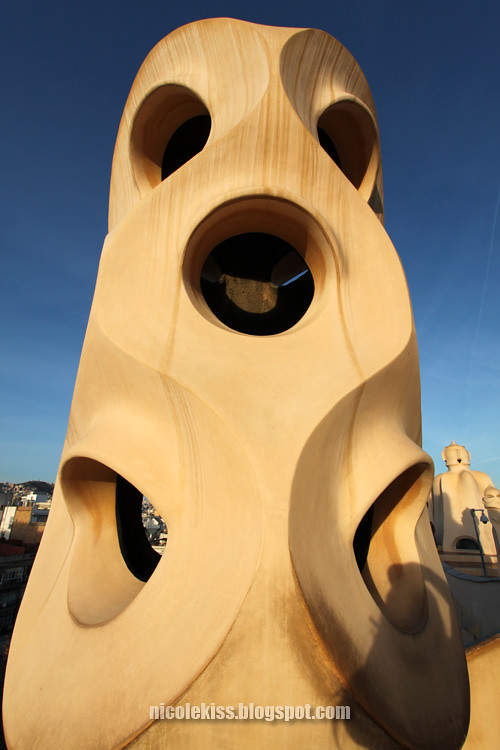
fancy looking ventilation tower


me!!! Been a long time aye?

view down the atrium
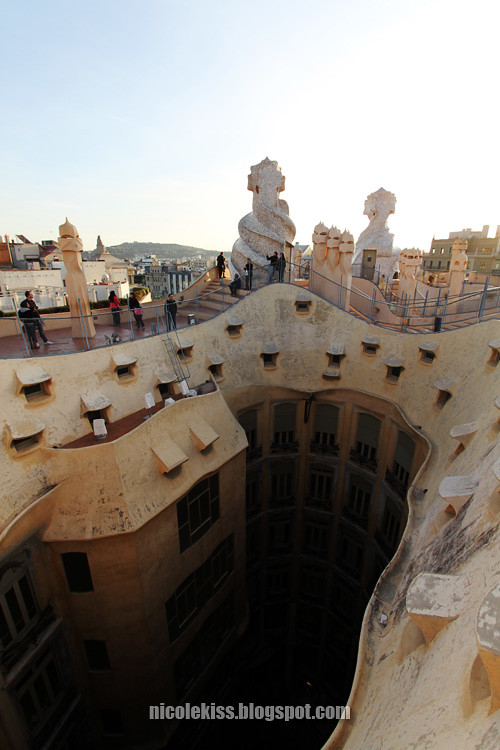
another view down the atrium
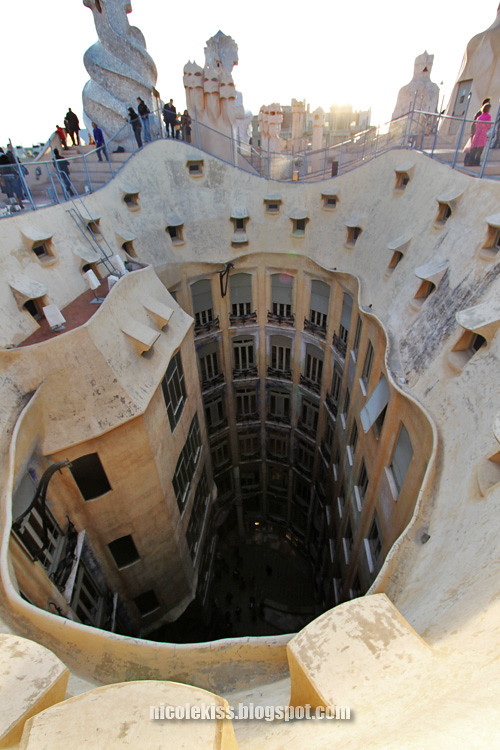
and another, I love my wide angle lens
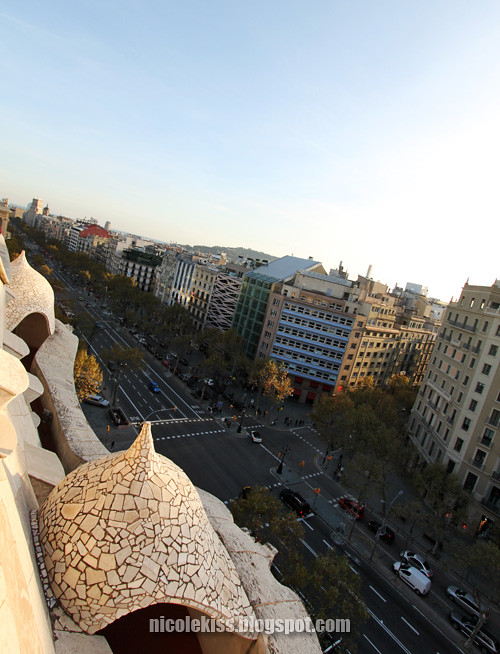
view of the city

Can you see Sagrada Familia in the distance (down the road actually)?
Well wait for the next post! We're going there!
View Antoni Gaudí's other works here :-
Casa Batlló
Park Güell and
Sagrada Familia
No comments:
Post a Comment